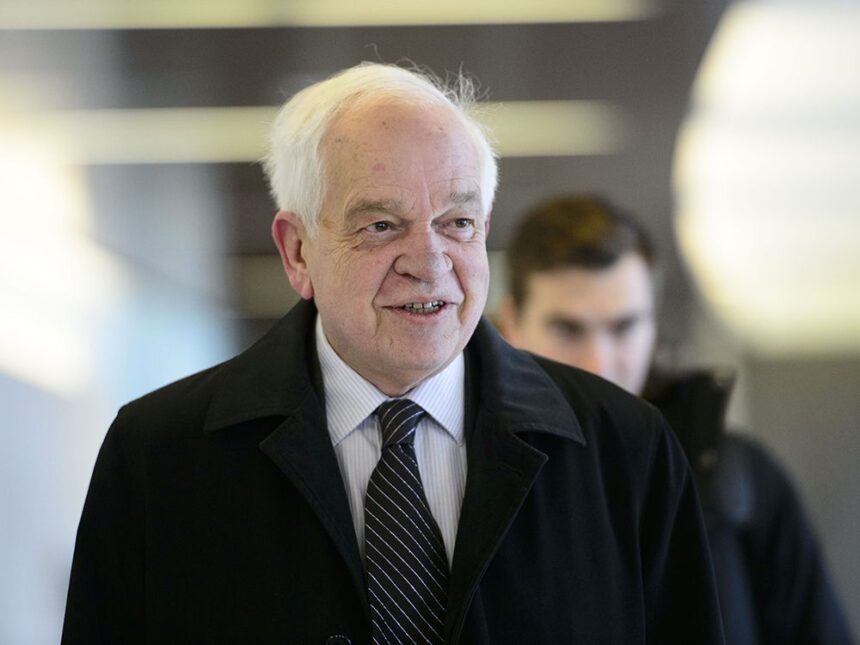The Canadian political landscape lost one of its most distinctive voices this week as John McCallum, former Liberal cabinet minister and ambassador to China, passed away at 75 after a prolonged illness. Known for his sharp intellect, occasional unfiltered remarks, and significant contributions to multiple federal portfolios, McCallum leaves behind a complex legacy spanning three decades in Canadian public service.
“John was a dedicated public servant who brought both academic rigor and practical wisdom to every role he undertook,” Prime Minister Justin Trudeau said in a statement Tuesday. “His contributions to Canada’s economic policy, defense initiatives, and international relations have left an indelible mark on our nation.”
McCallum’s political journey began far from Parliament Hill. Born in Montreal and educated at Cambridge University and McGill, he built a reputation as a respected economist, serving as chief economist for the Royal Bank of Canada before answering Jean Chrétien’s call to enter politics in 2000. His academic background provided him with analytical skills that would become his trademark across multiple cabinet positions.
During his 17 years as MP for Markham-Unionville and later Markham-Thornhill, McCallum served in several high-profile cabinet positions including National Defence Minister, Veterans Affairs Minister, and Immigration Minister. His tenure was marked by both significant achievements and occasional controversies, particularly his candid—sometimes too candid—public statements.
Perhaps most consequential was McCallum’s role in Canada’s response to the Syrian refugee crisis. As Immigration Minister in 2015-2016, he oversaw the resettlement of more than 25,000 Syrian refugees, a humanitarian effort that redefined Canada’s approach to global migration challenges. “That was his proudest achievement,” noted former colleague and Liberal MP Marco Mendicino. “He saw the human faces behind the policy decisions.”
McCallum’s career took an unexpected turn when Trudeau appointed him ambassador to China in 2017—a role that would eventually lead to his most public controversy. In 2019, following the arrest of Huawei executive Meng Wanzhou in Vancouver, McCallum suggested to Chinese-language media that she had a strong case to fight extradition to the United States. The comments, which appeared to undermine Canada’s judicial independence during a tense diplomatic standoff, led to his dismissal.
Despite this controversial end to his diplomatic career, colleagues across party lines have remembered McCallum for his substantive contributions to Canadian policy. Former Conservative cabinet minister James Moore described McCallum as “a principled opponent who always put country before partisanship when it mattered most.”
McCallum’s approach to politics was refreshingly authentic in an era of carefully managed messaging. Former staffers recall his preference for frank discussion over political calculation. “He didn’t always say the politically convenient thing, but he always said what he believed,” said former aide Jennifer Tuck. “In today’s political environment, that kind of integrity is increasingly rare.”
Economic policy experts point to McCallum’s influence on Canada’s fiscal framework during critical periods of both growth and recession. His understanding of global economic forces helped shape Canada’s response to multiple financial challenges throughout the early 2000s.
McCallum is survived by his wife Nancy Lim and their three children. As tributes continue to pour in from across the political spectrum and around the world, Canadians are left to consider a question that defined McCallum’s own approach to public service: In an age of increasing polarization, how do we preserve space for principled individuals who speak their minds while maintaining the collaborative spirit necessary for effective governance?


















